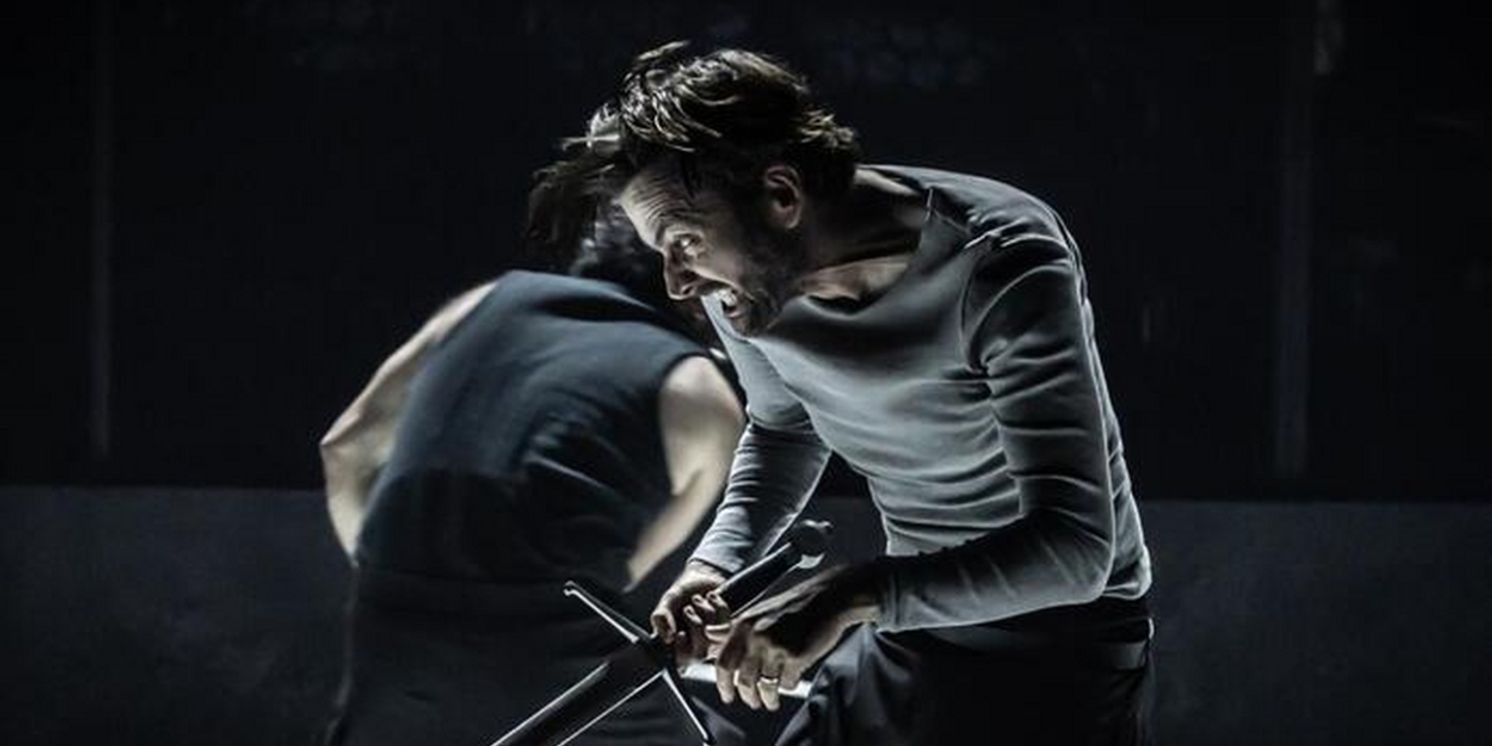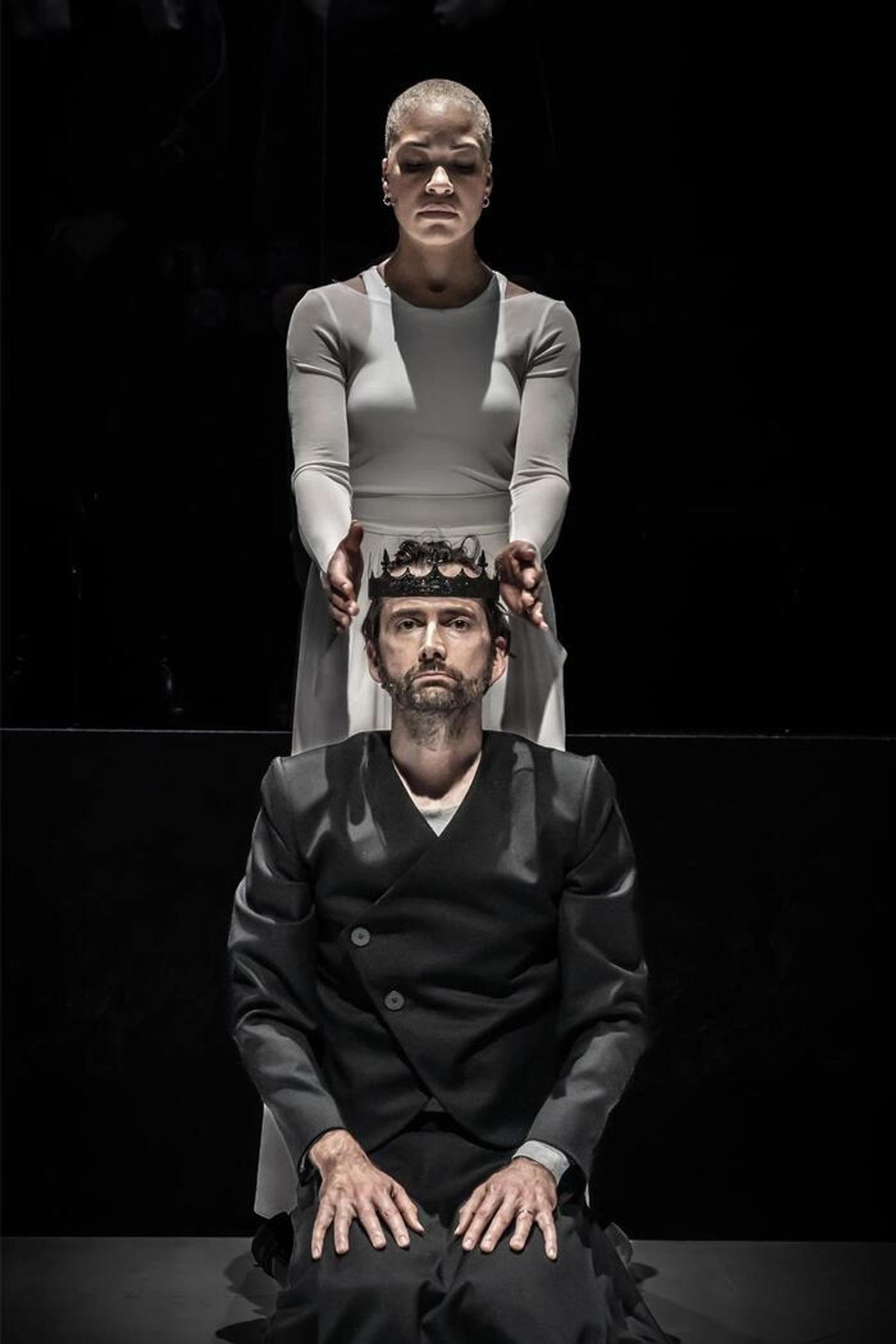Review: MACBETH, Donmar Warehouse
David Tennant and Cush Jumbo helm a fresh technological take on Shakespeare's classic.

![]() Much like Hamlet, Shakespeare’s cursed play has attracted big names since the popularisation of the role by Garrick in 1744. A list of famous pairs of Macbeths went down in history in the 20th century (namely Laurence Olivier and Vivien Leigh, Ian McKellen and Judi Dench, Antony Sher and Harriet Walter) and, more recently, James McArdle and Saoirse Ronan graced the stage at the Almeida in 2021 before transferring to Broadway with Daniel Craig and Ruth Negga. With David Tennant being the Scottish Shakespearean he is, it’s surprising he’s only been in a radio adaptation of it last year.
Much like Hamlet, Shakespeare’s cursed play has attracted big names since the popularisation of the role by Garrick in 1744. A list of famous pairs of Macbeths went down in history in the 20th century (namely Laurence Olivier and Vivien Leigh, Ian McKellen and Judi Dench, Antony Sher and Harriet Walter) and, more recently, James McArdle and Saoirse Ronan graced the stage at the Almeida in 2021 before transferring to Broadway with Daniel Craig and Ruth Negga. With David Tennant being the Scottish Shakespearean he is, it’s surprising he’s only been in a radio adaptation of it last year.
He finally takes on the tyrant joined by Cush Jumbo as his viciously ambitious wife in a unique take directed by Max Webster featuring binaural audio. This Macbeth is impressive in many aspects, including the technology. Tennant is a sarcastic, taunting, heartless ruler juxtaposed with a focused, surprisingly human and compassionate Lady M in Jumbo. Platinum buzz-cut and clipped English accent, she’s a magnetic presence and swiftly establishes herself as the star of the show.
Their performances are enthralling, but removed from the audience. Armed with headphones, the patrons are given a personal, intimate feed of every breath and murmur of the actors they’ve come to see. We’re suddenly privy to each accidental stroke to the microphones and every contact they have with their costumes, but are denied whatever collateral noise the performers make unless their device is turned on, whether it’s a laugh, a snicker, or a huff. The care shown to the soundscape of the piece is astonishing, and Gareth Fry delivers a luscious design with Alasdair Macrae’s compositions, but it turns into an overdone gimmick by the first quarter.

The headsets are lightweight and not cumbersome in any way, but they constantly carry some harmonious effect in a sort of horror vacui of sound. While Tennant et al. can easily whisper their monologues and create a more naturalistic manner of speech for their characters, their brilliant work has an artificial impact, ultimately detracting from the theatrical experience. It’s a production for ASMR lovers and the digitally inclined. Webster’s confident vision in theory becomes a stylistic exercise in practice. He builds a distinctively visceral and unfeelingly beautiful imagery with stark and shadowy smoke that fills a space divided into two layers.
A white altar-like platform takes up the Donmar’s stage while, at the back, a glass casing divides the musicians and other actors. The ensemble ambles from specific roles to a demonic manifestation that haunts Macbeth. They bang on the panes, crawl out, and punctuate the spiralling state of the Thane. It’s a magnificent look. A shame that the whole binaural trick draws the attention away with the cawing and fluttering of obnoxious crows among other tracks. It’s a lovely experiment, but it’s unnecessary. Think trying to one-up Jamie Lloyd’s directive flair.
It would be interesting to see the show free from all the fancy listening gear so we can bask in the thrill of seeing Tennant and Jumbo grapple with their actions without a middleman. After all, isn’t part of the beauty of theatre that the audience isn’t separated from the story by a screen of any kind? The run is sold out (as it should be!) and they’re probably already in talks for a transfer (as they should!), but one wonders if this is actually what the future of drama is: a Shakespearean ASMR experience that will be dubbed as immersive. Fair is foul, and foul is fair.
Macbeth runs at The Donmar Warehouse until 10 February.
Photo Credits: Marc Brenner
Reader Reviews
Videos

